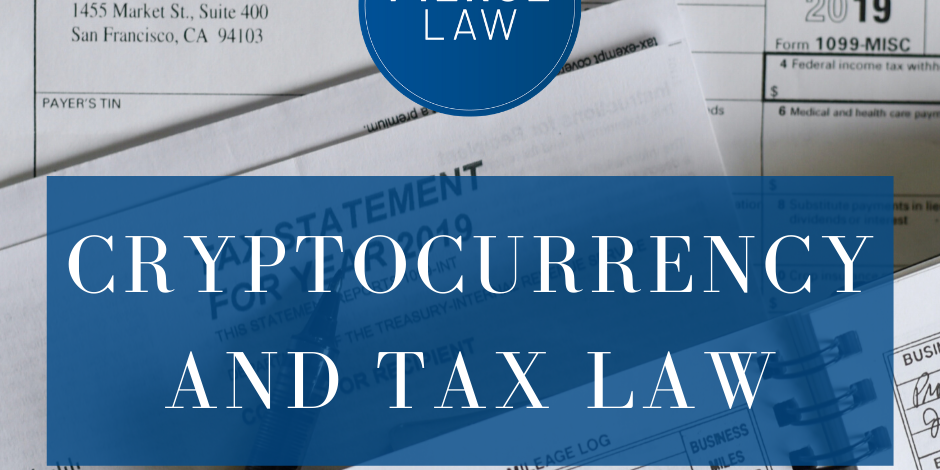Overview – Cryptocurrency and United States Tax Law – North Carolina Bitcoin Lawyer
In a March 25, 2014 notice, the United States Internal Revenue Services (“I.R.S.) described virtual currencies as “a digital representation of value that functions as a medium of exchange, a unit of account, and/or a store of value and does not have legal tender status in any jurisdiction.” The notice also stated that virtual currency, like Bitcoin, that has an equivalent value in real currency, is referred to as “convertible” virtual currency. The IRS further provided guidance on “the sale or exchange of convertible virtual currency, or the use of virtual currency to pay for goods or services in a real-world economy transaction, has tax consequences that may result in a tax liability.” Finally, the notice classifies virtual currency as personal property, and that for federal tax purposes, “general tax principles applicable to property transactions apply to transaction using virtual currency. The simplified implications of this notice include:
- Any wages paid to employees using virtual currency are taxable to the employee, must be reported by an employer on a W-2, and are subject to federal income tax withholding and payroll taxes.
- Any payments using virtual currency made to independent contractors and other service providers are taxable and self-employment tax rules generally apply. Normally, payers will be required to issue a 1099, if the amount is $600 or more.
- The character of whether there is a gain or loss from the sale or exchange of virtual currency depends on whether the virtual currency is a capital asset in the hands of the taxpayer.
- A payment made using virtual currency is subject to information reporting to the same extent as any other payment made in property.
- A taxpayer who “mines” virtual currency is required to report the fair market value of the virtual currency as of the date of receipt as includible gross income.
- Failure to comply with tax laws concerning virtual currencies may subject the taxpayer to penalties.
Although the IRS seeks to collect such taxes on virtual currencies, there are a few legal work-arounds that may allow taxpayers to avoid paying capital gains taxes on earnings from investment in bitcoins, these include: (1) gifting virtual currency to family members and/or loved ones; (2) using a foreign bank account; and (3) hold onto the virtual currency and await legal recognition as a currency. However, such loopholes should not be construed in any effort to blatantly avoid paying capital gains taxes, as that may be viewed as a criminal offense.
The I.R.S. has been actively trying to find those taxpayers who have attempted to use virtual currency for tax evasion purposes. In 2014, the I.R.S. issued a John Doe summons, (a very broad request) to Coinbase, Inc., the largest Bitcoin exchange in the United States, seeking the records of customers who purchased virtual currency on the exchange from 2013 to 2015. This summons was brought as a direct result of an I.R.S. agent finding cases in which Coinbase customers were using Bitcoin to evade paying taxes. The summons has yet to be enforced, as Coinbase has fought to keep its customers’ information out of the hands of I.R.S. authorities. The I.R.S., in response has reduced the scope of the summons, to those customers who conducted at least $20,000.00 in business during the years of 2013-2015. Coinbase currently has motions to quash the summons pending in the United States Northern District of California, San Francisco Division, which were filed on July 27, 2017.
Thus, the future implications of federal tax law on the sale, trade, purchase, or other disposition of cryptocurrency currently depends largely on the interpretation of I.R.S. policies and existing U.S. property tax laws. However, there have been indications that Congress is going to enact legislation to “bring digital currency out of the shadows,” by providing protections to certain virtual currencies which meet minimum conditions on prevention of their use by terrorists, drug traffickers, and others engaged in unlawful business practices. The plan is to “mainstream digital currency so it can be treated just like the American dollar.” While this plan seems novel, it was only considered shortly before the Congressional recess in August, and likely has some fine details which need to be ironed out.


